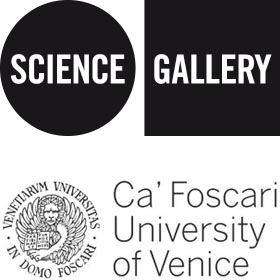Climate change is one of the most pressing issues of our time and its devastating impact is already felt strongly in cities like Venice, which are struggling to remain sustainable and habitable. Dealing with climate change not only requires science and technology but the cooperation from everybody in society. One step to help achieve this cooperation is through the construction of archives about dramatic events related to climate change.
These archives should contain not only physical and ecological data but also social data gleaned from social media, news and oral histories. They make it possible to learn about the past and see patterns to prepare the future. But to achieve their potential, archives must be made accessible and understandable to everybody and this requires both scientific and artistic methods. Climate change is one of the most pressing issues of our time and its devastating impact is already felt strongly in cities like Venice, which are struggling to remain sustainable and habitable. Dealing with climate change not only requires science and technology but the cooperation from everybody in society. One step to help achieve this cooperation is through the construction of archives about dramatic events related to climate change. These archives should contain not only physical and ecological data but also social data gleaned from social media, news and oral histories. They make it possible to learn about the past and see patterns to prepare the future. But to achieve their potential, archives must be made accessible and understandable to everybody and this requires both scientific and artistic methods.
The workshop ‘Archives and AI: coping with Climate Change’ uses the AquaGranda Digital Community Memory recently created in the face of the catastrophic inundation in Venice on November 2019 as a source of concrete case studies to examine the role of archives in mitigating climate change. The workshop focuses specifically on the use of AI. AI is playing a growing role in archives for data collection, data access, and data interpretation. Although there are many positive and exciting aspects to this use of AI for the Common Good, which we will highlight in the workshop, there are also difficult issues related to privacy, security, fairness, and bias.
The exhibition ‘AquaGranda Digital Community Memory’ is accessible in Venice and online:https://www.aquagrandainvenice.it/nuxt/
curators: Luc Steels and Neal Hartman
Science Gallery Venice May 2021-2022
The catalogue is freely downloadable here:
https://zenodo.org/record/4739305

